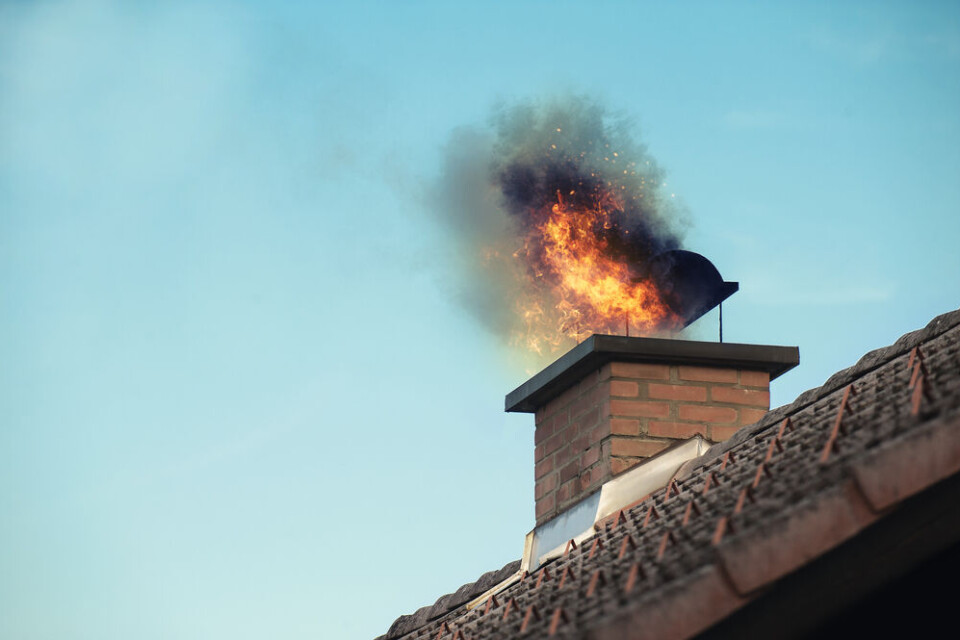-
How many Americans live in Paris - and where else are they choosing in France?
Over a quarter of all US nationals in France live in the capital city
-
Price rises for Netflix in France
The Standard (with ads) and Premium packages are increasing by €24 a year
-
Leclerc supermarkets to sell car fuel at cost price for Easter
The initiative will apply to diesel, petrol, and LPG
Tips to help avoid chimney fires as numbers increase in France
Correct wood, regular upkeep; we look at what you can do to reduce the risk

Firefighters have warned of an increasing number of chimney fires across France as people use them over the winter period.
This is particularly the case in rural areas where many homes have an open fireplace.
The leading cause of chimney fires is bad upkeep of the chimney, including irregular or poor cleaning and maintenance.
“It's essential to have your chimney swept before you light a fire in your home for the first time (each year),” says Michel Cherbetian, colonel of the Nîmes firefighter brigade.
Carbon monoxide can be one issue caused by a fire in a home.
A key piece of advice given is to ensure you hire a professional to install your chimney system or wood-burning stove effectively as this can be a complex task even for seasoned DIY enthusiasts.
Below we look at other tips on how to reduce the risk of chimney fires.
Regularly clean your chimney
The most important thing to do is to make sure you clean your chimney.
Chimneys need to be cleaned before you light the first fire of the year, and a few weeks after the last fire of the season.
Recently, the laws on cleaning chimneys changed, however some insurance companies have even stricter rules about how often chimneys must be cleaned.
Read more: How often do I need to sweep my chimney in French home?
Chimneys must be swept by a professional chimney sweeper (ramoneur) to count as being ‘cleaned’.
You should also make sure to check your chimney is in good condition, especially if you have a glass panel insert instead of an open fire.
Faulty panels could lead to a build-up of flammable and toxic materials in your home, which can cause a stronger fire in the case of an accident.
Use the correct wood
You should only use completely dry wood in your chimney, as damp wood can create tar which can clog your chimney flue and increase the risk of fire.
Firewood stored in a dry place for at least two years is best, otherwise you can use a moisture meter (humidimètre) to check if your wood is damp.
Hardwoods are better than softwoods for a fireplace, for example oak, beech, and maple.
Painted or varnished wood should be avoided as burning these can cause toxic vapours in your home and clog the chimney by attaching to the soot.
Prevent overflow, isolate chimney from flammables
Never leave the fire on if the room with your chimney will be empty for a period of time.
Use a fire screen or spark arrestor (pare-feu or pare-étincelle).
Do not overstock the chimney with too much wood, as this could cause flames to leap higher than usual and ignite soot in the flue.
Take care to avoid any flammable objects such as clothes or rugs being placed directly in front of the fireplace (especially when left to dry for a long time), as they can catch fire from a stray spark.
Oxygenate your stove
You should keep your arrivée d’air (air intake damper) at least partially open, to allow the fire to oxygenise correctly. If your fire idles too much without oxygen, it will lead to a build up of soot in the flue, increasing the likelihood of fire.
In addition, you should make sure your home is aired adequately, to prevent a potential build-up of CO2.
Do not use water to put out a fire
Finally, if a fire does break out, pouring water down the chimney is not recommended.
“It risks breaking all the pipes, especially the ventilation pipes,” says Mr Cherbetian.
You should close all doors in the home to prevent the fire from spreading, exit the house, and call the firefighters immediately. They have special tools to deal with chimney fires.
Related articles
Boost the warmth from a wood stove in your French home
Wood pellet stoves in France: prices, types, aid, advice
























